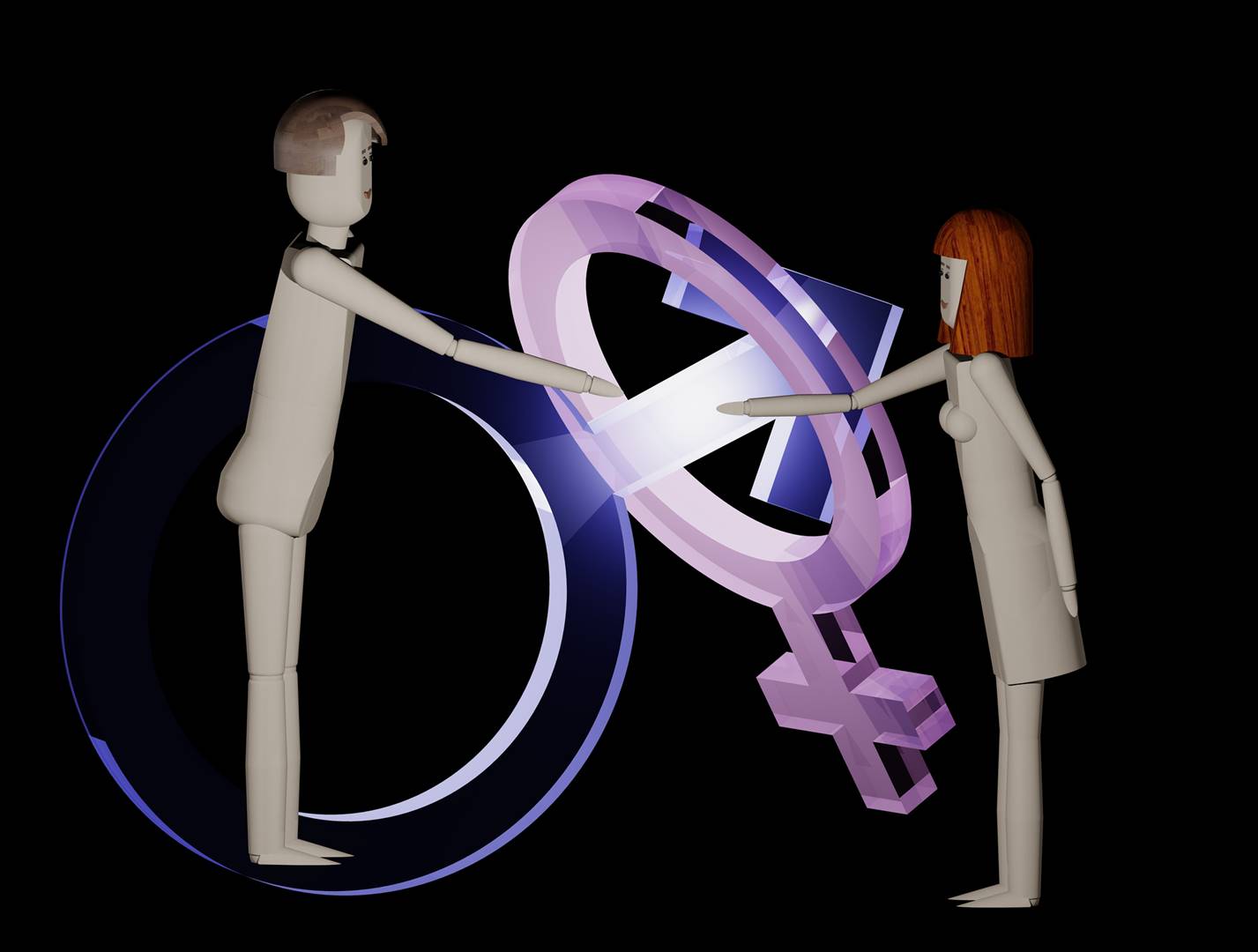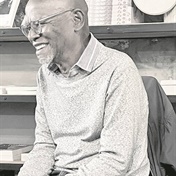
This is an extract from the book Perils of Patriarchy, a six-part book series, that seeks to shed the personal experiences that all South Africans face on a daily basis due to the social system called patriarchy. This extract is from Peril Six: Men Unimagined by Nokwanda Mpama.
I’d like to very briefly discuss violent men. Men who carry with them a weak sense of masculinity assert themselves in the most ferocious ways. Recently the term ‘fragile masculinity’ has been coined to describe such men.
You’ll see posts on social media or hear people say: “Oh he suffers from fragile masculinity.” I don’t really agree with this. I don’t want to overcomplicate things but for me, the word “suffer” implies an affliction of some sort. I think the idea that the abhorrent violence some men show toward women can merely be attributed to a case of fragile masculinity is an oversimplification of a bigger problem and it allows these men to escape accountability.
Men are angry for a multitude of reasons and at times that anger manifests into violence. Many are raised to believe that fragility of any kind is completely incompatible with manhood and that any challenge to their masculinity should be met with the most visceral anger. I don’t believe that men are inherently violent or predatory, I think such behaviour is taught and as society must figure out how to deal with it.
I would also like to express my disaffection with our government. The recent spate of femicide and increased gender-based violence has not resulted in action from the government. I don’t mean to offend anyone but marches, moments of silence and speeches in parliament do not make women feel heard. Without implementation and funding of safety programmes, femicide will continue to be one of many unfortunate things that happen in South Africa, like corruption.
I can guarantee that, come election season, a political party will have the audacity to use women being killed and gender-based violence as part of campaign for votes. We need a complete reconstruction of our beliefs about gender and how we raise children. The day men stop treating woman as objects will be the day our lives truly begin. Until then, being a woman in South Africa is an extreme sport, an incredibly dangerous terrain to navigate.
...
My high regard for men started to wane when they began seeing me as a sexual conquest. I hate it when men flirt with me, not only does it make me uncomfortable, but the lack of ingenuity irks me.
I’m not sure if this a common issue throughout the continent but South African men don’t know how to flirt. If only one South African man reads this chapter, please Chief, tell your friends to do better because I and many other women are highly unimpressed. I can’t tell you how many times I’ve heard “I love you my sister” from absolute strangers in taxis and in different parts of town. I used to smile awkwardly and shuffle away. This response or lack thereof, was fuelled by fear because there are men are in this world that don’t take kindly to the word “no” and you don’t know until you piss them off.
Unfortunately, no man has the phrase “if you refuse my advances, I’ll moer you” plastered on their face. However, about three years ago, I got over this fear I started asking these “chivalrous” men: “What do you love about me?” Most of them give me a vacant look and are unable to answer because they have never been asked to explain themselves. Essentially, we live in a world where men don’t have to explain themselves.
Many men I’ve encountered are not used to being held accountable for the things they say they speak without thinking and expect woman to just smile and accept it. I believe that this is a consequence of society treating men as the ultimate authority figures in every space they occupy, from the household to the office; men are unquestionable. In fact, in Zulu culture, as in many African cultures, it’s considered rude to look directly at man when speaking to him.
When a self-assured woman who values her dignity, dares transgress these archaic social constructs by disagreeing or questioning a man, you hear some men accuse her of being disrespectful or will ask: “Do you want to be the man in this household?” These responses have always intrigued me because they suggest that many men believe that respect and dignity are is qualities reserved for men and any woman who wants to be treated with some semblance of dignity doesn’t know her place.
I am not satisfied with merely burning my bra and vilifying men, the point of this chapter is to convey that not every women’s experience with masculinity is unilaterally negative. Men are complicated, multi-faceted beings who just happen to be protected by patriarchy.
I am also well aware of the fact that there will be multiple definitions of patriarchy put forth by the exceptional ladies that have contributed to this book, but please bear with me as I attempted to put forth my own. I define patriarchy as the advancement and protection of men to the detriment of women. Patriarchy is inherently violent, exclusionary and dangerous. Countless men rubbish the idea of patriarchy as pure fiction and a figment of the overactive feminist imagination. These men are unaware or choose to be complacent with patriarchy because it serves them. The adverse effects of patriarchy only become apparent to men when they act contrary to what this deeply entrenched social construct demands. Patriarchy in my view is different to masculinity.
I don’t know how I got this far into this chapter without attempting to define masculinity but here goes nothing: I would define masculinity as the expression of manhood. Like most human behaviour, I’d like to think that masculinity presents itself in many forms and as I have tried to illustrate, masculinity can be beautiful and extremely positive.
Many men and women conflate patriarchy with masculinity. This became evident when #MenAreTrash started doing the rounds on social media, this was also when Karabo Mokoena was murdered by her boyfriend.
What was particularly disturbing to me was the fact that men on my Facebook feed were more distressed about being likened to trash than the fact that a woman was murdered by her boyfriend who stuffed her body in a dustbin then set her on fire in an abandoned field. South Africa has the highest statistics of violent crimes against women and children. We have the highest instances of rape for a country not at war.
We are an incredibly violent country and I would argue that much of this violence is as a result of men who fiercely seek to protect patriarchy and the social advantages to bestows to men.
Patriarchy is amazingly complex because it’s like a massive hand that cradles men but simultaneously holds them in a vice grip. It not only dictates how women ought to act but also commands a kind of hyper-masculinity that is incompatible with tenderness or weakness. As much as men have violently sought to keep women in check, men also ridicule and humiliate men that show any vulnerability. You see this in the egregious homophobia some men show toward Gay men and the assumptions some make about the sexual orientations of many effeminate men.
Patriarchy is a unique social construct that transcends gender, sexuality, age and class. Its effects are oppressive and long lasting. Problems aren’t solved by merely pointing them out, we need to have honest conversations in our homes and in public spaces about how to reconstruct the South African male archetype. We need to create safe spaces for men to freely express themselves in ways that aren’t self-destructive and that don’t hurt those closest to them.
• Nokwanda Mpama is a final-year LLB student at the University of the Witwatersrand. This is an extract from the book Perils of Patriarchy. Mpama wrote Peril Six: Men Unimagined
 | ||||||||||||||||||||||||||
Get in touchCity Press | ||||||||||||||||||||||||||
| ||||||||||||||||||||||||||
| Rise above the clutter | Choose your news | City Press in your inbox | ||||||||||||||||||||||||||
| City Press is an agenda-setting South African news brand that publishes across platforms. Its flagship print edition is distributed on a Sunday. |




 Publications
Publications
 Partners
Partners









